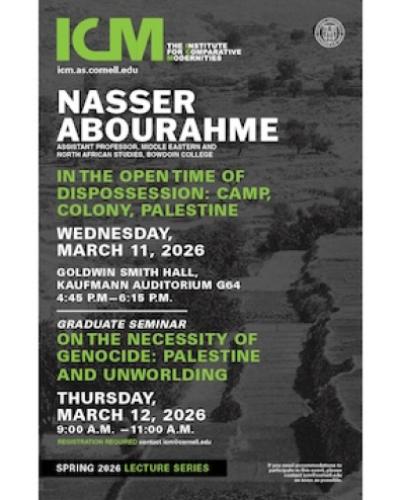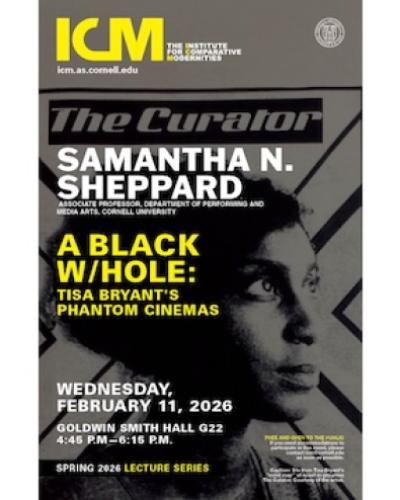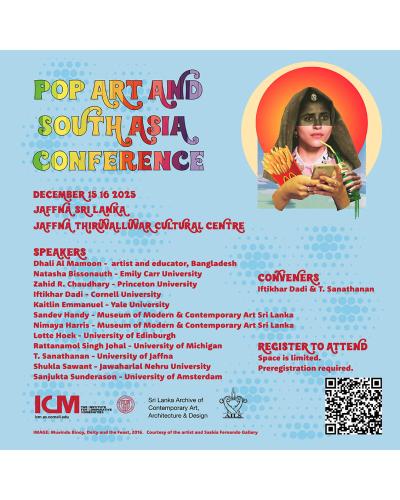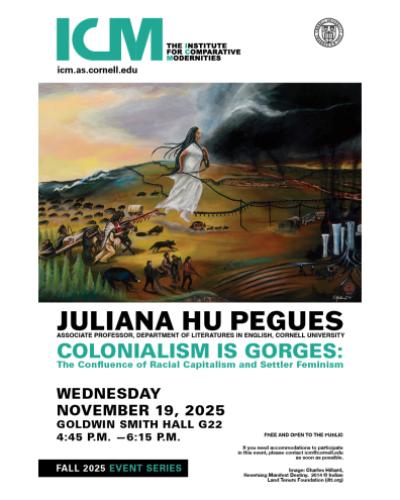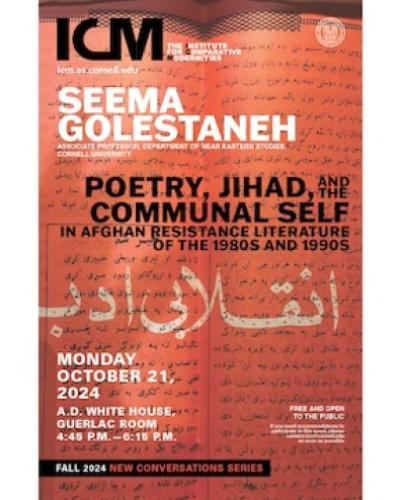ICM NEW CONVERSATION
SEEMA GOLESTANEH (Associate Professor, Department of Near Eastern Studies, Cornell University)
"Poetry, Jihad, and the Communal Self in Afghan Resistance Literature of the 1980s and 1990s"
Monday, October 21, 2024
Guerlac Room, A.D. White House
4:45 p.m. —6:15 p.m.
Description
In Afghanistan, poetry operates as a common idiom, appearing frequently in everyday speech by those who have and have not received formal education. In this talk, I explore the idea of a communal self that emerges through the composition of poetry in the service of jihad as seen in Afghan resistance literatures written during the 1980s war with the Soviets. This is evidenced partially through the publication of anonymized poetry and the obfuscation of the authorial voice. I argue that when poetry is composed on behalf of jihad, it is no longer written only by and for the self, but becomes part of a broader campaign, therein gesturing to something larger.
Biography
Seema Golestaneh is Associate Professor in the Department of Near Eastern Studies at Cornell. Her research, situated at the nexus of anthropology and religious studies, is focused on expressions of contemporary Islamic thought in the Persian-speaking world, with particularly interest in how metaphysical experiences make themselves known in the socio-material realm via aesthetics and epistemology. Her forthcoming book, Unknowing and the Everyday: Sufism and Knowledge in Iran, examines the social and material life of gnosis (ma’arifat) for disparate Sufi communities in Iran. Essentially an anthropology of the imagination, my work also relies heavily on textual ethnography and analysis, emphasizing the importance of hermeneutics within the Iranian socio-theological sphere. Prof. Golestenah is currently at work on a project tentatively entitled Utopia Lost?:Afghan Theories of Radical Poetics and Islamic Governance. Drawing largely from archival materials and oral histories, Utopia Lost investigates the dreams and aspirations of Afghan intellectuals in the late 1980s and 1990s for forms of government that did not come to pass.

